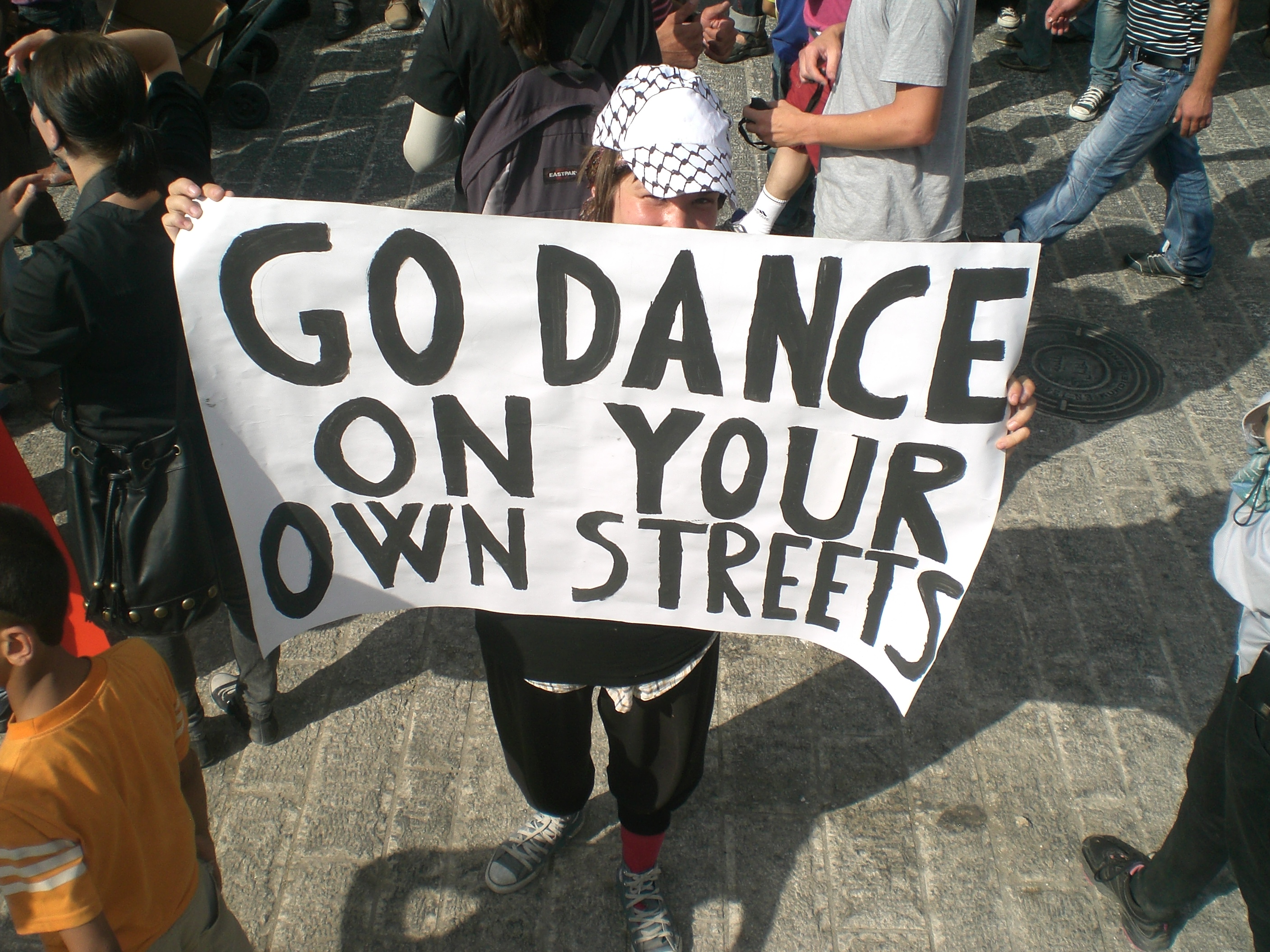Tag: Hebron
-
CPT: Israeli Border Police Demolish Cistern in Al Beqa’a Valley
Christian Peacemaker Team – Hebron Israeli border police demolished a rainwater cistern and removed irrigation pipes from several Palestinian fields in Al Beqa’a Valley just east of Hebron on July 14, 2010, the second day of incidents in the area this month. When international peace activists from Christian Peacemaker Teams arrived in the area at…
-
CPT: Israeli Police Invade Palestinian Home, Arrest Father in Hebron’s Old City
Christian Peacemaker Team – Hebron July 14, 2010 FOR IMMEDIATE RELEASE On July 13, 2pm about 20 Israeli police and soldiers invaded the Awewi family home in Hebron’s Old City. They forced the mother and the eight children into the kitchen and arrested the father, who is a Palestinian Authority (PA) police officer. The mother…
-
Hebron ‘dance protest’ against Israeli soldiers and settlers
10 July 2010 Over 100 Palestinians together with international solidarity activists gathered in Hebron this Saturday to protest against the closure of Shuhada street. As a response to the infamous YouTube video of soldiers dancing near the illegal settlement of Tel-Rumeida, some protesters staged a dance protest: three dancers took the role of soldiers and…

